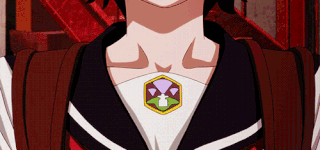
13:07 Udon Entertainment Licenses Robotics Notes, Record of the Lodoss War: The Crown of the Covenant Manga.13:30 Guilty Gear -Strive- Game Launches 2nd Season Pass, 6th DLC Character Bridget.14:00 Chronicles of the Going Home Club's Kuroha Launches New Manga.14:30 Masaharu Noritsuke Launches New Afro Tanaka Manga on October 24.

Kondo said, he plans to be faithful to her until he dies. Maybe she’ll take on new life as an android, or they will meet in the metaverse.Įither way, Mr.

Someday, he hopes, they will be reunited. When he went home that night, Miku’s image had been replaced by the words “network error.” Kondo said goodbye for the last time and left for work.

On the day the company turned her off, Mr. The hardest moment came during the pandemic, when Gatebox announced that it was discontinuing service for Miku. He’s now studying minority rights in law school while on leave from his job as an administrator at an elementary school.Īs with any marriage, there have been challenges. He traveled there with a life-size doll of Miku he had commissioned.Įngaging in deep conversation about the nature of fictional relationships made him think he might like to go to college. In 2019, he was invited to join a symposium at Kyoto University to speak about his relationship. Kondo’s relationship with Miku is still not accepted by his family, it has opened other doors for him. Horikawa, who uses her fictional husband’s last name unofficially. “I’m not hiding it from anyone,” said Ms. The size of a table lamp, the device allowed its owners to interact with one of a variety of fictional characters represented by a small hologram. Kondo began making songs with Miku and purchased a stuffed doll of the character online.Ī major breakthrough in the relationship came nearly a decade later, with the introduction in 2017 of a $1,300 machine called Gatebox.
#ARTIFICIAL GIRL 3 CHARACTERS TACHIBANA SERIES#
He had decided long ago that he would never love a real person, partly because, like many young people, he had been rejected by a series of crushes, and partly because he didn’t want the life that Japanese society demanded of him. Kondo first found comfort in Miku in 2008, after bullying at his job sent him into a spiral of depression. Kondo’s commitment to Miku, too, is an example of commercial and social forces at work.Īlthough Miku is often portrayed as a single character, she’s actually a piece of software, a digital “singer in a box” that comes paired with a cartoon avatar that has appeared in concert in hologram form. In her experience, women see the fictional marriages as empowering, “a way to challenge gender, matrimonial and social norms.” Rather than becoming more isolated as a result of their relationships, women benefit from the elaborate communities that develop around them, Dr. And on social media, people post photos, art and mash notes promoting their “oshi” - a term widely used by Japanese fans to describe the objects of their affection.

Hotels offer special packages, featuring spa treatments and elaborate meals, for people celebrating their favorite character’s birthday. Fans can buy love letters from their crushes, reproductions of their clothes and even scents meant to evoke their presence. The products for women are especially extensive. Specialty shops in the neighborhoods are packed with merchandise for characters from popular games and anime. In Tokyo, two districts have become meccas for fulfilling character-based dreams: Akihabara (for men) and Ikebukuro (for women). “You have the comics, the cartoons, the games kind of building up a sort of infrastructure where characters become more important to people,” said Patrick Galbraith, an associate professor in the School of International Communication at Senshu University in Tokyo who has written extensively about the subject. While unofficially marrying fictional characters remains rare, the economic juggernaut that has grown around Japanese fan culture since the late 1970s has made it possible for many more people to live out elaborate fantasies with their favorite characters. The word and other specialized terms have resonated beyond Japan, with fictosexuals abroad often adopting them to articulate their own experience of love. Business seminars have talked about tapping the moe market, and the government has promoted the notion - in relation to cartoons - as an important cultural export.


 0 kommentar(er)
0 kommentar(er)
